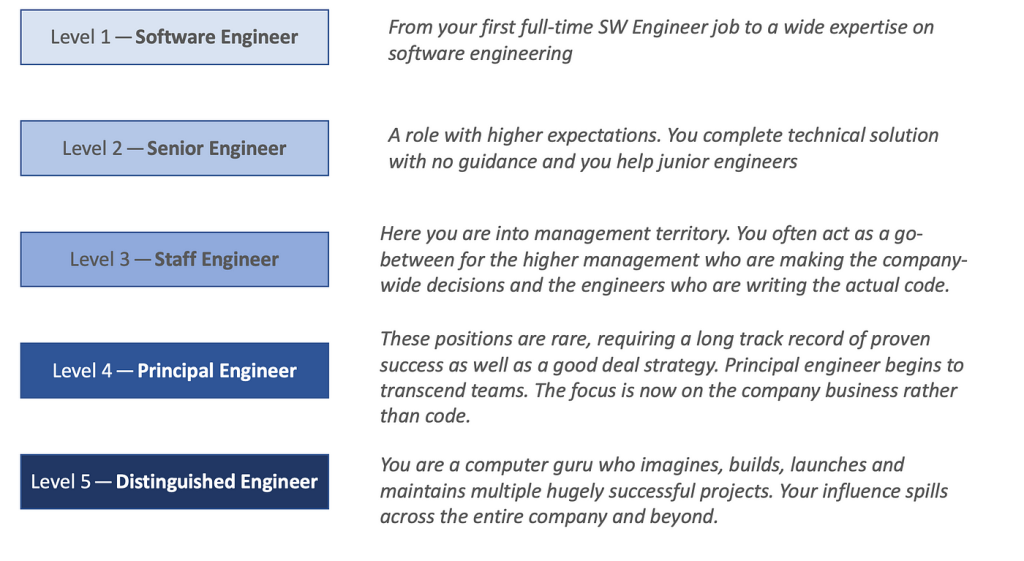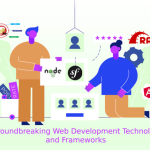Unveiling The Ultimate Software Developer Showdown: From 1 To 2, Which Will Reign Supreme?
Software Developer 1 vs 2: A Comprehensive Comparison
Introduction
Greetings, Readers! Today, we delve into the fascinating world of software development and compare two prominent roles in this field: Software Developer 1 and Software Developer 2. As technology continues to advance, the demand for skilled software developers is on the rise. However, it is essential to understand the distinctions between these two roles to make informed decisions for career growth or hiring purposes. In this article, we will explore the responsibilities, qualifications, and career prospects of both positions, providing you with valuable insights into the world of software development.
Now, let’s begin our journey by understanding the key aspects of a Software Developer 1 and a Software Developer 2.
1 Picture Gallery: Unveiling The Ultimate Software Developer Showdown: From 1 To 2, Which Will Reign Supreme?

What is a Software Developer?
🔍 Software Developers play a crucial role in designing, coding, and maintaining software systems. They are responsible for turning ideas into functional software solutions that meet user requirements. Let’s explore the differences between Software Developer 1 and Software Developer 2:
Software Developer 1
🔍 A Software Developer 1 is an entry-level position in the software development field. Individuals in this role work under the guidance of senior developers and contribute to the development process. Their primary responsibilities include:
Writing code and implementing software solutions based on specifications provided by senior developers or project managers.
Collaborating with team members to identify and fix software defects.
Assisting in the testing and debugging of software applications.
Learning new technologies and programming languages to enhance their skills.
Following software development best practices and coding standards.
Participating in code reviews to ensure code quality and maintainability.
Documenting software features, functionalities, and user manuals.
Image Source: licdn.com
Software Developer 2
🔍 A Software Developer 2 is a more experienced role with additional responsibilities and requirements. Professionals in this position are expected to demonstrate a higher level of expertise and independence. The key responsibilities of a Software Developer 2 include:
Leading software development projects and guiding junior developers.
Designing software architecture and making high-level technical decisions.
Implementing complex features and functionalities.
Optimizing software performance and ensuring scalability.
Identifying and addressing potential security vulnerabilities.
Mentoring and providing technical guidance to junior developers.
Collaborating with cross-functional teams to gather requirements and deliver solutions.
Who Can Become a Software Developer 1 or 2?
🔍 The field of software development welcomes individuals from diverse backgrounds. While specific educational requirements may vary based on the company and position, the following qualifications are typically sought after for Software Developer 1 and 2 roles:
Software Developer 1
Image Source: twimg.com
🔍 To pursue a career as a Software Developer 1, aspiring professionals usually need:
A bachelor’s degree in computer science, software engineering, or a related field.
Basic knowledge of programming languages such as Java, C++, or Python.
Familiarity with software development methodologies and tools.
Strong problem-solving and analytical skills.
Good communication and teamwork abilities.
A desire to learn and adapt to new technologies.
Software Developer 2
🔍 To qualify for a Software Developer 2 role, individuals typically need:
A bachelor’s or master’s degree in computer science, software engineering, or a related field.
Several years of experience as a Software Developer 1 or in a similar position.
Proficiency in multiple programming languages and frameworks.
Advanced knowledge of software development principles and best practices.
Leadership and project management skills.
An ability to solve complex technical challenges.
Effective communication and collaboration skills.

Image Source: medium.com
When Should You Consider a Software Developer 1 or 2?
🔍 The decision to pursue a Software Developer 1 or 2 role depends on several factors, such as career aspirations and experience level. Consider the following scenarios:
Software Developer 1
🔍 You should consider a Software Developer 1 position if you:
Are a recent graduate or transitioning to a career in software development.
Are looking to gain hands-on experience and enhance your technical skills.
Want to learn from experienced developers and work in a supportive team environment.
Are open to mentoring and guidance to accelerate your career growth.
Software Developer 2
🔍 You should consider a Software Developer 2 position if you:
Have substantial experience as a Software Developer 1 and are ready to take on more responsibility.
Are confident in your technical abilities and can lead software development projects.
Want to make high-level technical decisions and contribute to the architectural design of software systems.
Enjoy mentoring and guiding junior developers to help them succeed.
Where Can You Find Software Developer 1 and 2 Opportunities?
🔍 Software Developer 1 and 2 positions are available in various industries and organizations. You can find opportunities in:
Software development companies.
Technology startups.
Large corporations with in-house development teams.
Government agencies.
Consulting firms.
E-commerce companies.
Financial institutions.
Why Choose a Career as a Software Developer 1 or 2?
🔍 Becoming a Software Developer 1 or 2 offers numerous benefits and opportunities:
Advantages of Being a Software Developer 1 or 2
High demand: The demand for software developers continues to grow, ensuring a plethora of job opportunities.
Lucrative salaries: Software developers receive competitive salaries due to the specialized skills required for the role.
Creative outlet: Software development allows you to express your creativity through problem-solving and innovative solutions.
Continuous learning: The field is constantly evolving, providing ample opportunities for learning and professional growth.
Flexibility: Software development offers remote work options and flexible schedules, promoting a healthy work-life balance.
Disadvantages of Being a Software Developer 1 or 2
High expectations: The field is highly competitive, and developers are often expected to meet strict deadlines and deliver high-quality results.
Continuous learning: While it can be an advantage, the need to constantly learn new technologies and keep up with industry trends can be challenging and time-consuming.
Long hours: Software development projects may require working long hours or overtime to meet project milestones.
High-pressure environments: Developers may face pressure to solve complex problems and deliver flawless software solutions.
Subject to market trends: The demand for specific programming languages or frameworks may fluctuate, requiring developers to adapt their skills accordingly.
How Can You Transition from Software Developer 1 to 2?
🔍 Transitioning from a Software Developer 1 to a Software Developer 2 requires dedication and continuous improvement. Here are some steps you can take to make the transition:
Gain experience: Seek opportunities to work on challenging projects and take on additional responsibilities.
Expand your knowledge: Learn new programming languages, frameworks, and software development methodologies.
Develop leadership skills: Take initiative, mentor junior developers, and demonstrate your ability to lead projects.
Network: Connect with experienced professionals in the industry and learn from their experiences.
Continuously improve: Stay up-to-date with the latest industry trends and best practices.
Showcase your work: Build a strong portfolio highlighting your achievements and contributions to software development projects.
Pursue further education: Consider pursuing advanced degrees or certifications to enhance your qualifications.
Frequently Asked Questions (FAQs)
1. Is it possible to directly become a Software Developer 2 without prior experience as a Software Developer 1?
🔍 While it is not impossible, it is uncommon to directly become a Software Developer 2 without prior experience as a Software Developer 1. The role of a Software Developer 2 typically requires a certain level of expertise and experience gained through working as a Software Developer 1 or in a similar position.
2. Can I switch from being a Software Developer 2 to a Software Developer 1?
🔍 Yes, it is possible to switch from being a Software Developer 2 to a Software Developer 1 if you wish to take a step back in your career or explore different opportunities. However, it is essential to consider your long-term goals and the impact of such a transition on your career progression.
3. What programming languages are commonly used by Software Developers?
🔍 The choice of programming languages may vary depending on the project requirements and the organization. However, some commonly used programming languages in software development include Java, C++, Python, JavaScript, Ruby, and PHP.
4. How long does it take to become a proficient Software Developer?
🔍 The time it takes to become a proficient Software Developer varies based on individual dedication, learning abilities, and prior experience. Generally, it may take several years of continuous learning and practical experience to become proficient in software development.
5. What are the future prospects for software developers?
🔍 The future prospects for software developers are promising. With the increasing reliance on technology and digital transformation across industries, the demand for skilled software developers is expected to continue growing. The rapid advancement of technologies such as artificial intelligence, cloud computing, and mobile applications also opens up new opportunities for software developers.
Conclusion
In conclusion, the distinction between Software Developer 1 and Software Developer 2 lies in their responsibilities, qualifications, and experience levels. Both roles are integral to the software development process, and individuals can choose the path that aligns with their career goals and aspirations.
Whether you are starting your journey as a Software Developer 1 or aiming to transition to a Software Developer 2, continuous learning, practical experience, and a passion for problem-solving are key to success in this dynamic and evolving field.
Now that you have a comprehensive understanding of the differences between Software Developer 1 and 2, it’s time to take the next step in your software development journey and make an impact in the digital world!
Final Remarks
🔍 The information presented in this article about Software Developer 1 vs 2 is intended to provide a general overview and should not be considered as definitive guidance for individual career decisions. It is crucial to conduct further research, seek advice from industry professionals, and assess personal circumstances before making any career-related choices.
This post topic: Programming


